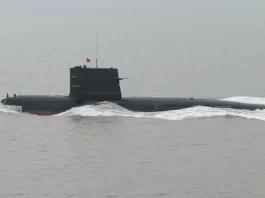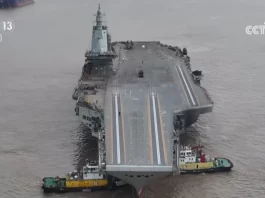A leading player in the naval military industry across the Atlantic, Huntington Ingalls Industries (HII) could find itself in a very embarrassing situation. Indeed, one of its subsidiaries, Newport News Shipbuilding, informed the U.S. Department of Justice that there might be “intentionally defective” welds on “non-critical” components installed aboard the latest Virginia-class nuclear attack submarines (SSN) and the Gerald Ford aircraft carrier.
These defective welds were discovered during internal quality checks. According to USNI News, it appears that some of these “welding errors” were “intentional.”
“We recently discovered, through internal checks, that some welds did not meet our high-quality standards. As a result, we immediately contacted our clients, launched an investigation, and took steps to address these issues as well as to develop corrective measures as quickly as possible,” the shipyard explained, according to USNI News.
“Newport News Shipbuilding is committed to building aircraft carriers and submarines of the highest quality for the U.S. Navy. We do not tolerate any conduct that compromises our company’s values and our mission to deliver ships that protect our nation and its sailors,” the company stated.
The “intentional” nature of these errors has yet to be proven. U.S. Navy Assistant Secretary for Research, Development, and Acquisition, Nickolas Guertin, stated that shipyard workers may not have followed proper procedures and techniques for welding the components in question.
In any case, the U.S. Navy has said it is “aware” of the problem. The U.S. Navy has launched an inquiry to determine the extent of the issue. “We are working closely with our industry partners to address this situation and will provide additional information as soon as it becomes available,” it said.
This incident is reminiscent of a case from 2020 when the Australian group Bradken, owner of a foundry in Tacoma, Washington, discovered that strength tests conducted on steel parts intended for Virginia-class submarines had been falsified.
U.S. authorities held the company responsible, reached a “deferred prosecution” agreement, agreed to review its control procedures, and fined it “only” $10.8 million. However, the engineer in charge of the tests faced prosecution, receiving a sentence of 30 months in prison and a fine of $50,000 following her guilty plea.






